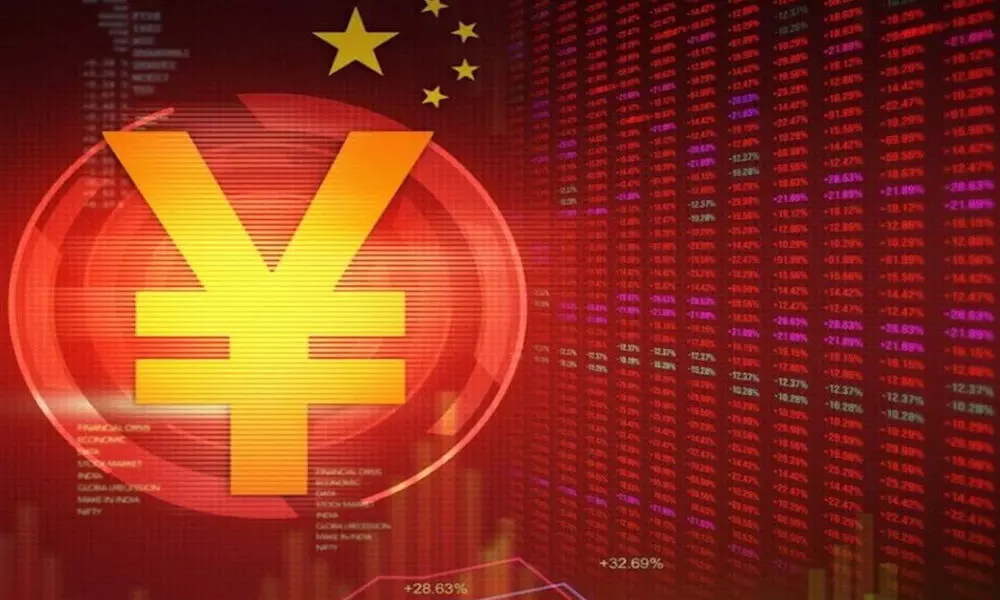Can Digital yuan disrupt existing commercial lending system?
e-CNY is believed to be heading for a soft launch coinciding with the 2022 Beijing Winter Olympics
image for illustrative purpose

The stronger the interest in China's coming digital currency, the less we seem to know about it. Sifting through comments by officials thought to be the brains behind the project, Capital Economics' chief Asia economist Mark Williams has raised an interesting question: What if the e-CNY, as some are beginning to call the new electronic cash, is not at all a central bank digital currency?
Most of us are by now familiar with electronic money, but popular apps like PayPal or Alipay are linked to bank accounts. A true Central bank digital currency will bypass lenders and make us directly the customers of monetary authorities. We'll use the liability of a central bank to pay for coffee or a book.
The excitement with the digital yuan - or the FedCoin or BritCoin - is precisely because of this: tokenized money is supposed to be an IOU of a Central bank, just like physical cash. We may use an ATM to draw down our accounts, but as soon as we do, the bank owes us less. The State owes us more. Digital cash has been conceptualized the same way. When we transfer funds from a savings account into our digital wallets, the commercial bank goes out of the picture, and the central bank steps in. Tokens make credit risk disappear from settlements. Transactions can remain anonymous unless the monetary authority wants to lift the hood to check for money-laundering.
However, if Williams is right, then e-CNY, which is believed to be heading for a soft launch coinciding with the 2022 Beijing Winter Olympics, may not be a claim on the People's Bank of China (PBOC). Then, "It isn't strictly a CBDC at all," he says. It may, in fact, be a digital relative of the Hong Kong dollar.
Since 1846, banknotes in the city have been the liability of commercial issuers. The three banks that supply everyday money maintain full reserves with the Hong Kong Monetary Authority. That's why nobody sitting on a pile of Hong Kong dollars is anxious about the creditworthiness of HSBC Holdings Plc, Standard Chartered Plc or Bank of China (Hong Kong) Ltd.
Digital yuan may have a similar design, according to Williams's reading of former PBOC Governor Zhou Xiaochuan's statements. The e-CNY will be the liability of the bank or fintech sponsor of digital wallets. They will issue tokens, each worth one yuan, and they will maintain reserve assets in their accounts with the central bank in the ratio of 1:1.
Customers sleep easy, though there's a cost for intermediaries. Suppose a saver has 100 yuan in a Chinese bank. The major institution that holds her money has to keep 12.5 per cent in required reserves with the PBOC. The rest is free for the lender to seek the best possible return. If the user moves funds to her e-CNY wallet, the bank would have to keep the full 100 yuan with the PBOC. In a pure digital currency model, the bank would have lost the entire deposit, something that no central bank running a digital cash pilot or experiment wants. However, if to retain a deposit, the lender has to put up cash for the entire amount, it may still be forced to curb advances. What bank would embrace a product like that?
That's one reason why Williams seems to think that the digital yuan will be a hard sell. Consumers in China are already getting all the flexibility they want with Alipay or WeChat Pay, which are entrenched and offer highly innovative uses. Similarly, banks will be loath to lock 100 per cent of even a part of their deposits in idle reserves. The duopoly of Alipay and WeChat Pay, which processes 94 per cent of China's third-party mobile-phone payments, will be reluctant to give up their rich harvest of consumer data.
So how to make the digital yuan work?
A neat solution - as with every form of money, according to the Chartalist theory - is to use the State's coercive power. All that authorities need to do is to pay civil servants and demand tax payments only in official digital currency. Payment platforms will then have no option except to offer an e-CNY alternative. In a few years, offering customers such a choice might even become mandatory.
As Williams says, "Left to the market, e-CNY is unlikely to succeed. But the government doesn't have to leave it to the market."
China's long-standing ambition to challenge the dollar's hegemony in global commerce hasn't gone anywhere. A digital yuan that's a popular means of payment overseas, especially in the Belt-and-Road network, would reinforce that goal. But before that, Beijing has to ensure widespread domestic use. So, policy makers' more immediate motivation may be to curb the sway of local tech titans, with minimum damage to banks' deposit base. The final architecture of the new currency is still unknown, but conceiving e-CNY as a cousin of the Hong Kong dollar - a synthetic central bank digital currency issued by banks and payment firms - and flexing the muscles of State power might tick most of the boxes. (Bloomberg)

